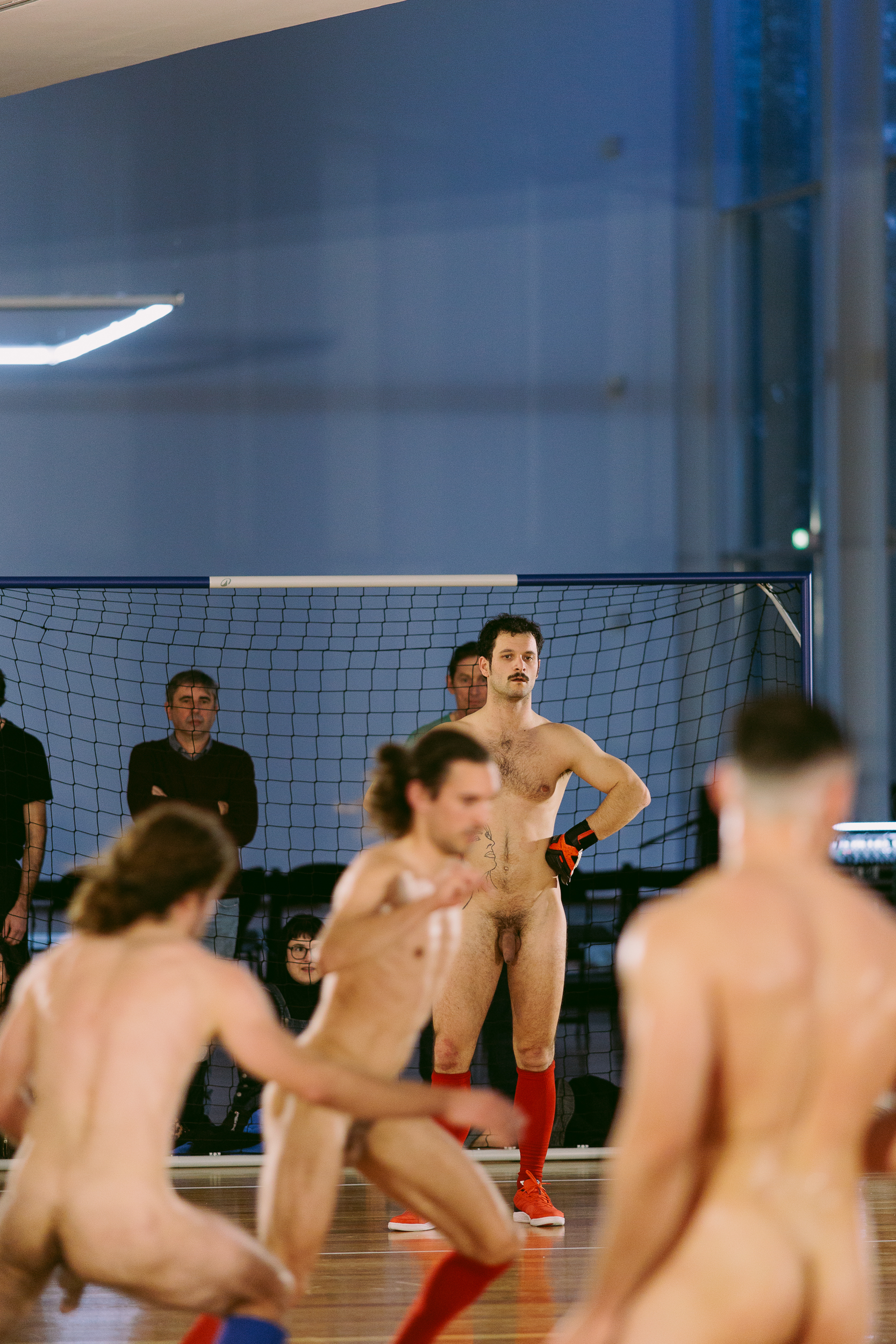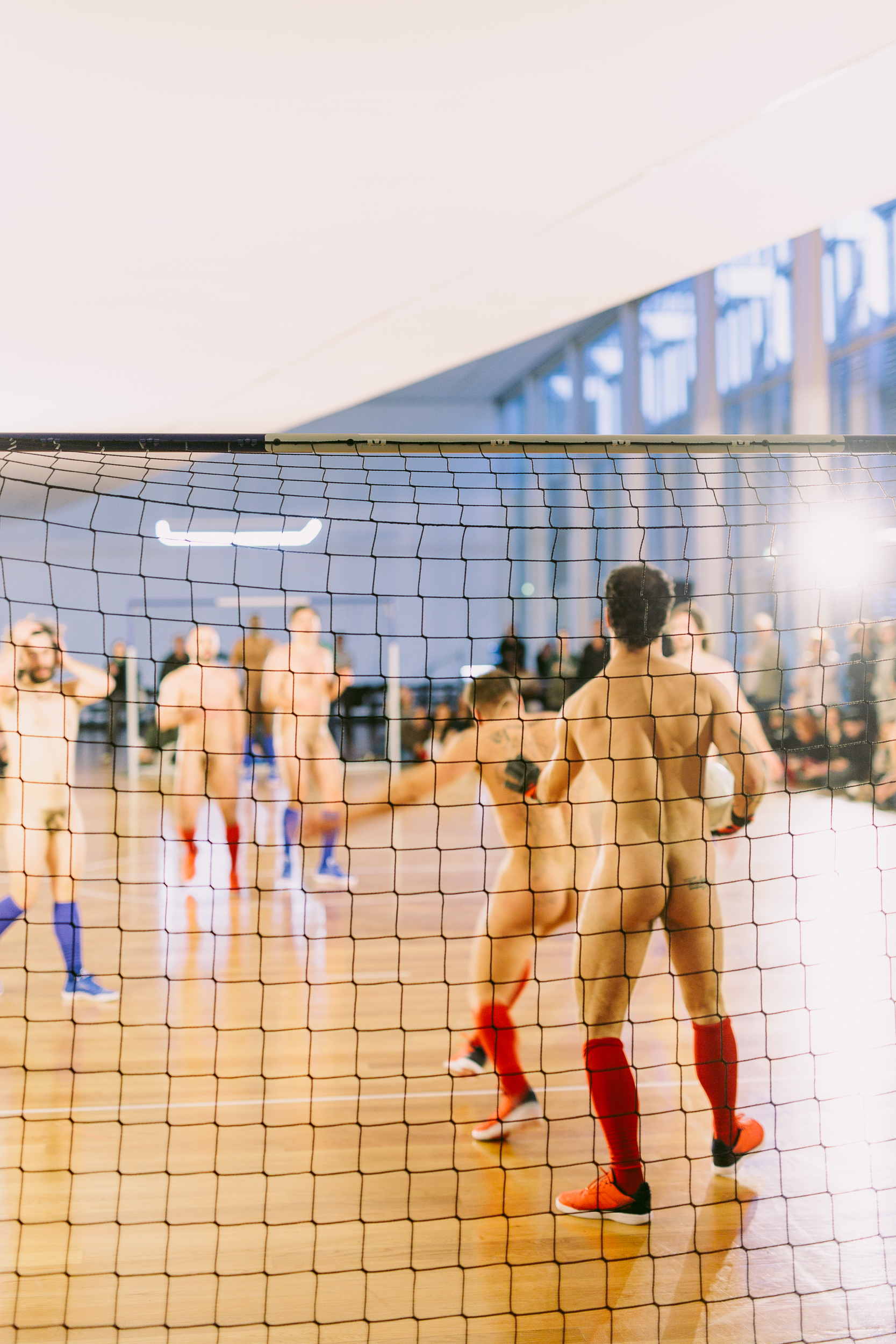
Interview by Rob Diament, Words by Tayler Willson
In a world where the boundary between art and life is ever-blurring, Eddie Peake continues to push the limits. His latest exhibition, Organ Harvest, is as enigmatic, as layered, and as provocative as they come, encapsulating the themes he has explored throughout his career: masculinity, the body, and the unexpected intersections of meaning that emerge from seemingly simple shifts in context.
At its core, Organ Harvest is built around one of Peake’s most discussed performance pieces: a five-a-side football match played entirely in the nude, within the controlled space of an art gallery. This event — in March, 2025, inside the Galeria Municipal do Porto, Portugal — isn’t the first time Peake has staged such an occasion; his 2012 work Touch carried the same premise, generating conversations about gender, power, and the vulnerability of the male body. But for Peake, repetition is no longer a taboo, it’s an evolving language of expression.
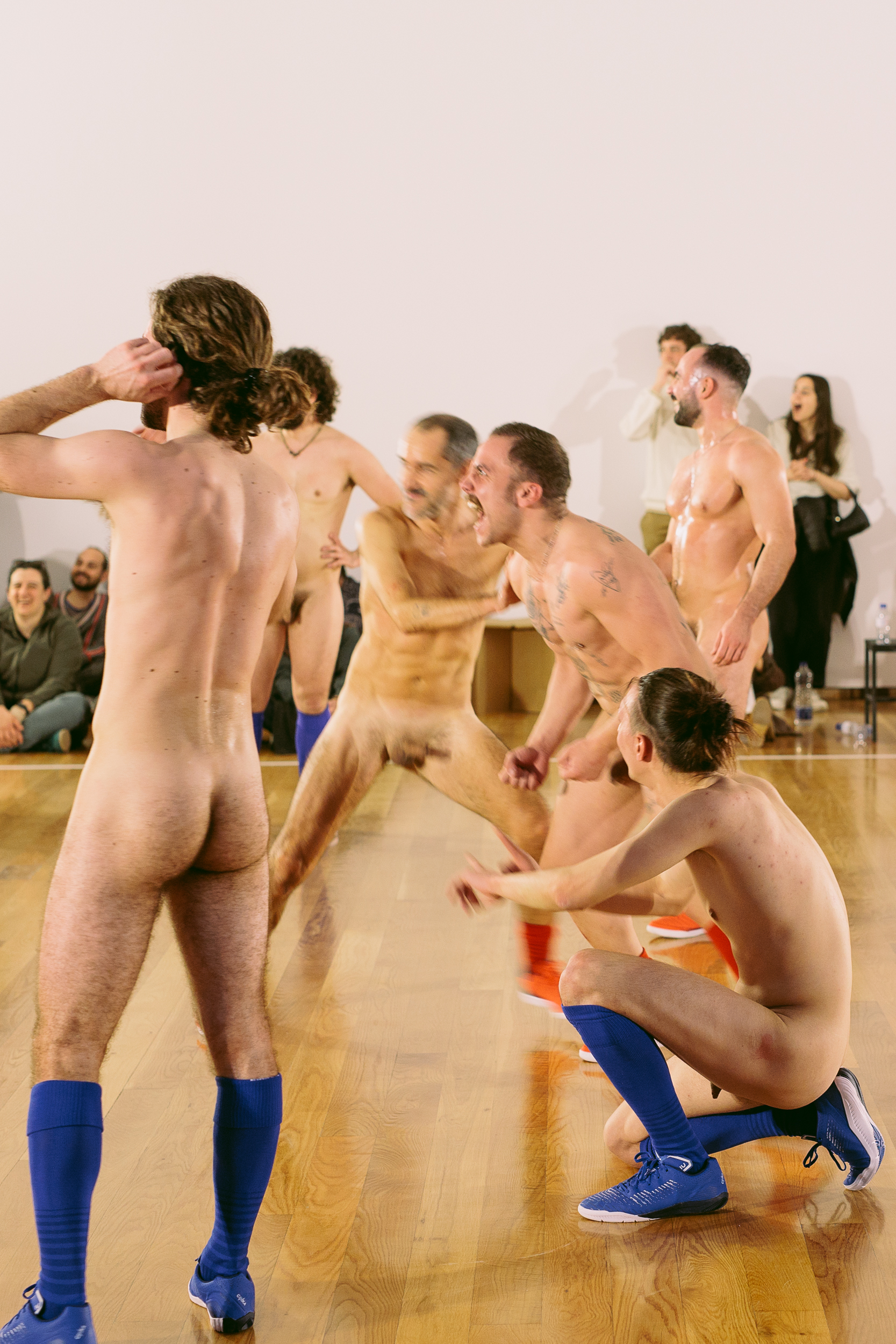
Peake’s artistic journey has been anything but linear. His early years after art school saw him experimenting with different media, resisting the idea of continuity in his work. “Until then, I had resisted the idea of continuity, thinking it was conformist, even capitalist,” he recalls. But during a residency in Rome, he found himself drawn back to painting, not as a limitation, but as a foundation. The decision to work on uniform wooden panels, a format he still uses today, provided him with an anchor in a practice that spans painting, performance, and installation.
That residency was also where he first embraced the idea that unresolved ideas deserve deeper exploration. It’s a philosophy that has informed Organ Harvest, a title that is both as poetic as it is disturbing. “One interpretation is poetic, a father storing a life-giving organ for his daughter. Another is darker: anonymous male bodies, slabs of flesh, running around like potential candidates for organ harvesting.”
That unsettling duality is precisely what makes this whole thing so compelling. The naked football performance, while physically simple, carries a wealth of meanings. Who is playing? Why are they comfortable taking part? What does the act of running, sweating, and colliding in an art gallery do to our perception of these bodies? Peake is aware that many of his performers fit a particular demographic — white, educated, often queer or queer-adjacent. That in itself raises questions. Who feels comfortable exposing themselves in this way? Who does not?
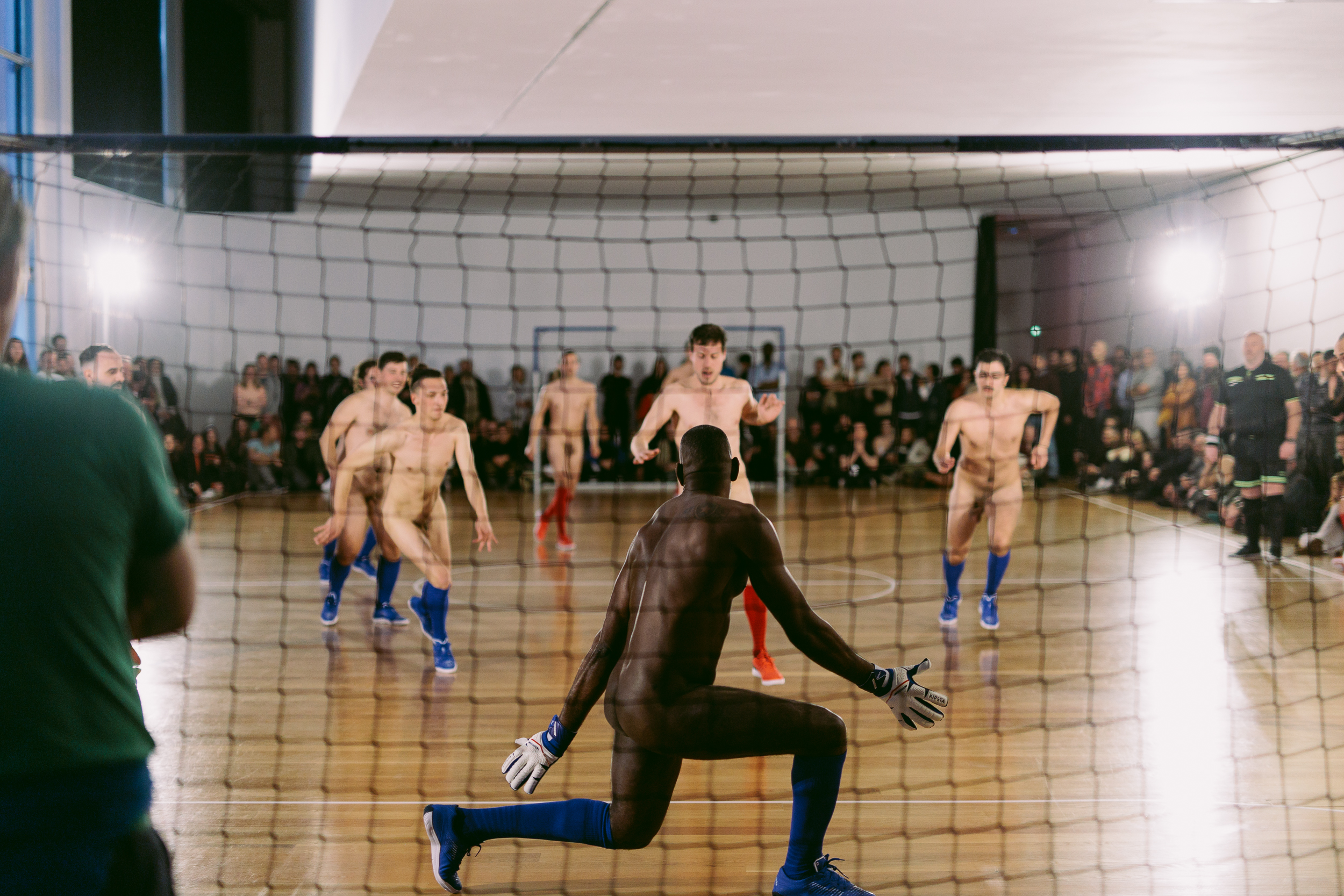
For years, Peake resisted restaging past works, believing that he needed to reinvent himself with every project. But his perspective has shifted. “The football match evolves each time, with a new title and new players, making it feel reborn,” he explains. Organ Harvest is not a mere repetition of Touch; it is an extension, a further questioning of the themes that first emerged in 2012.
Peake has also grappled with the idea of simplicity in art. “The word silly has been used to describe [my work], and while I’ve sometimes embraced that, I make a distinction between simple and simplistic. A work can be simple yet profound, discursive, even divisive. Simplistic, on the other hand, is reductive and uninteresting.”
This distinction is crucial to understanding Organ Harvest. On the surface, it is easy to dismiss as a gimmick, a nude football match in an art space. But to do so would be to overlook the layers of meaning embedded in the work. The physicality of the game, the social codes of sport, the exposure of the body in a traditionally hyper-masculine setting, each element contributes to an experience that is both immediate and deeply conceptual.
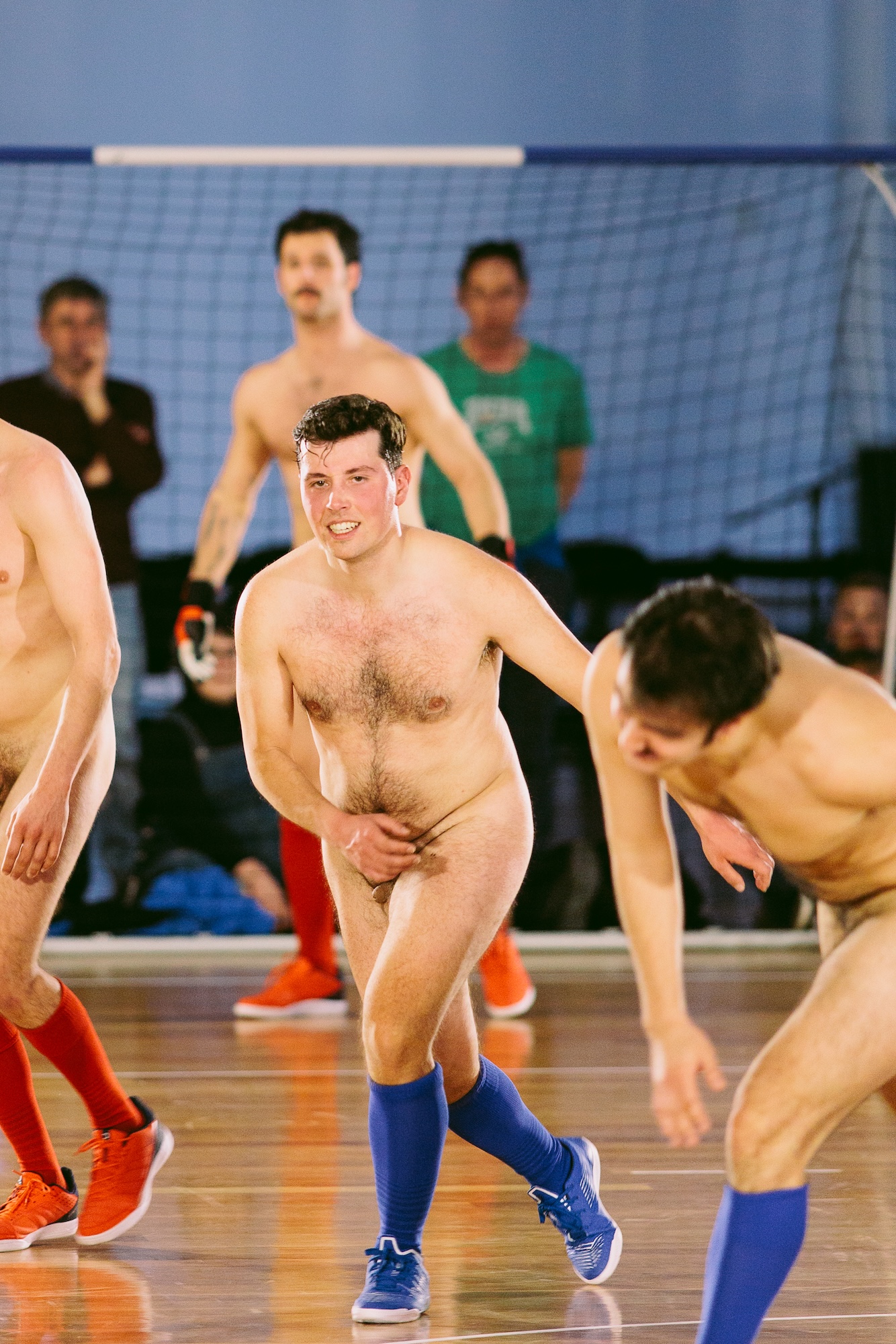
Titles have always played a significant role in Peake’s work, something he attributes to his father, the poet and artist Fabian Peake. “The phrase itself [Organ Harvest] feels expansive, it carries something sonic and open,” he says. But it is also ominous. He recalls being struck by a moment in the sci-fi series Fallout, where a robotic voice calmly declares, “Okay, now I’m going to harvest your organs.” The combination of clinical detachment and grotesque horror resonated with him, reinforcing the unsettling beauty of the phrase.
The title also taps into real-world concerns. Peake has been fascinated by the complexity of organ donation — how, even with a perfect match, transplants can fail due to lifestyle factors, genetics, and medical history. “That’s why the idea of a black-market trade is baffling,” he notes. The tension between life-saving medical advancements and the macabre reality of illegal organ trafficking adds yet another layer to his work.
Beyond the conceptual layers of Organ Harvest, Peake is also deeply engaged with the real-world impact of art. He and Celia Hempton, a fellow British artist based in London, are donating work to an upcoming Christie’s auction in support of Great Ormond Street Hospital, an institution at the forefront of pioneering medical treatments, including the possibility of lab-grown organs. “As artists, we’re often asked to contribute to auctions, and while it’s an honor, it can also be stressful – essentially participating in the public sale of our own work,” he admits. Yet this cause is particularly close to him. Years ago, he and Hempton reached out to the hospital’s arts charity, eager to support its initiatives. Organ Harvest, in some ways, ties back to this personal investment in medical and ethical advancements.
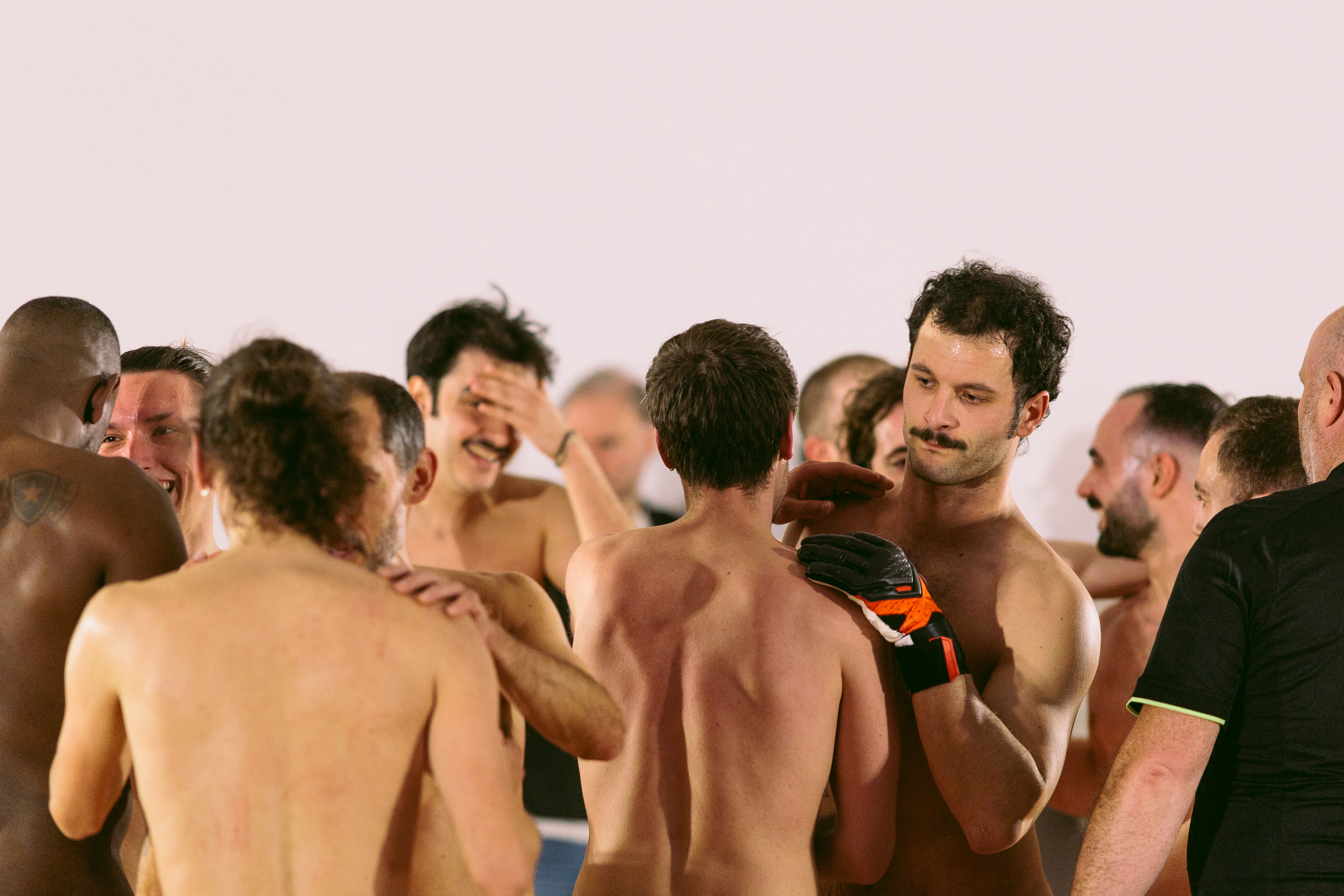
Peake’s work has always resisted easy categorisation. He views exhibitions as contrapuntal, like a Bach piece with multiple melodies interweaving. Organ Harvest is no different. The naked football performance is just one thread in a broader tapestry of painting, writing, and installation. “My true singular discipline isn’t painting, it’s exhibitions,” he states.
Here, Peake has created a work that is at once visceral and cerebral, playful and profound. It is a reminder that art need not be easily definable to be powerful. As he continues to re-examine and restage his performances, one thing remains clear: Eddie Peake is an artist unafraid to embrace both continuity and experimentation, finding new meanings in old questions, and refusing to settle for simplistic answers.
